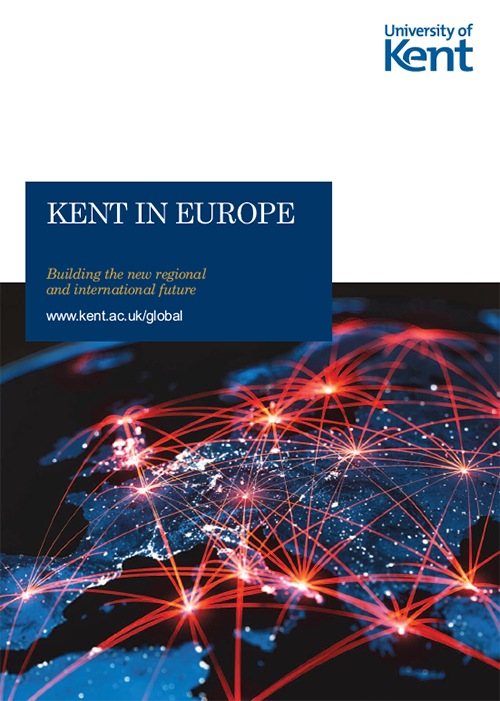Our Kent in Europe campaign highlights the new international space we’re working in. It is a key part of our Global Engagement Strategy for a rapidly changing world of global higher education. It illustrates the changing nature of recruitment, our new research opportunities and the need for regionally embedded public engagements.
While many of these developments have been overshadowed by the urgency of the Covid-19 pandemic, the work of developing new strategies in Europe has never stopped. There has been a constant exploration of new relationships and legal frameworks, and discussions continue in higher education as in politics; as seen in our new cooperation agreement with the University of London in Paris (ULIP) to promote UK Higher Education in Europe and joining the New UK University Overseas Campuses Network announced at UUKi TNE conference.
We have also been navigating the complex opportunities for study abroad placements in the post-Brexit landscape. Led by International Partnerships, positive dialogue and negotiations are ongoing to secure continuing post-Erasmus student exchange agreements.

International recruitment
As part of our new Routes to International Recruitment, we have set out our ambitions for Europe and countries where we know we are most likely to be successful in recruiting students to the University.
The challenge of the post-Brexit era has been in understanding Europe inside the new international arena. But the regional significance of Europe to Kent – as the gateway county – remains unique. The work of the Strait Committee – linking Kent County Council with its partners in Pas-de-Calais and Nord (France), West and East Flanders (Belgium) and Zeeland (Netherlands) – is one example of where local connections take on a vital economic and regional importance; not least in their seed funding of cross-regional projects.
In this new post-Brexit world, and in creating a University of Kent Global Engagement Strategy, it is essential to build on our developing relationships in Europe and across the world. Kent in Europe is one aspect of the new international space that remains key for recruitment, student exchanges, research and meaningful partnerships; it is also the flagship of our transnational education, with our postgraduate centres in Brussels and Paris.
Our international outlook
Kent in Europe forms a vital part of our international outlook, which in the 2021 THE World Ranking is higher than 8 of the top 10 universities in the world at 91.1%. While Brexit may slightly alter that profile in years to come, our European connections contribute to our international student and staff numbers, as well as supporting joint international research publications.
Our European relationships are also an essential part of an ongoing international exchange that enriches our teaching offer, our research funding and our civic mission. Alongside the dynamic offering of the Brussels School of International Studies and the Paris School of Arts and Culture, our International Partnership work supports important links for joint programmes in Politics and International Relations at Sciences Po Lille and Philipps-Universität Marburg and Law with Aix Marseille University. Our extensive Erasmus exchanges will continue until May 2023, and with the Government’s commitment to the Turing Scheme, there will be new European exchange options going forward, as well as virtual and short-term mobility opportunities with our partners. These activities embrace more flexible opportunities; presenting more inclusive international placements better reflecting the diverse interests of our student body.
Cross-regional research
Kent in Europe is vital for research success too. The 3i Network – bringing together collaboration between Universiteit Gent, KU Leuven, Université de Lille and Kent – has generated cross-regional research funding. Through the 3i network, we have joint-funded numerous Kent-Ghent projects and developed PhD cotutelle projects with the Université de Lille. Recently, colleagues at Kent were part of £150,000 research funding with the I-SITE ULNE Foundation (Lille), supporting work in History, Linguistics, Art History, Computing, Health Studies, Classics and Archaeology, Comparative Literature, Architecture and Physical Sciences.
The future is global and Kent in Europe is part of that global engagement, enhanced through our regional and civic commitments. In the turbulence of change, we are firm in our commitment to our European connections.
Professor Jeremy Carrette | Dean for Europe and Simone Davies | Director of MORA

